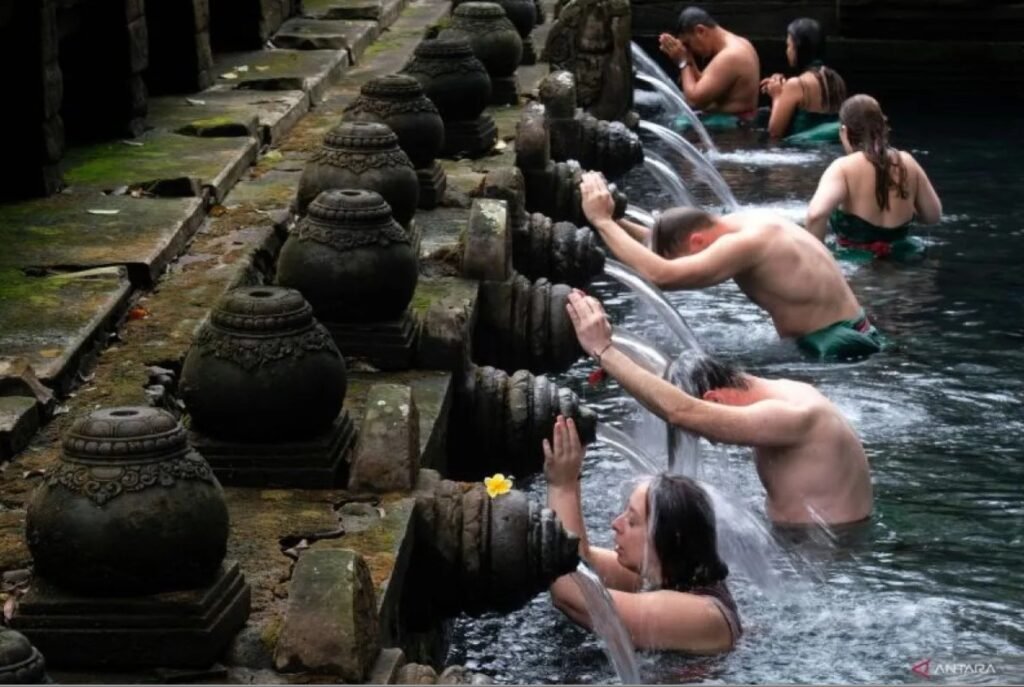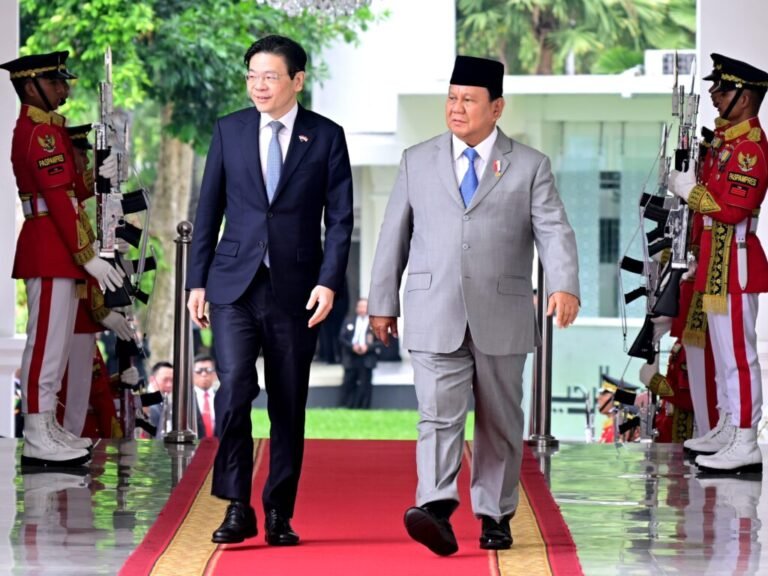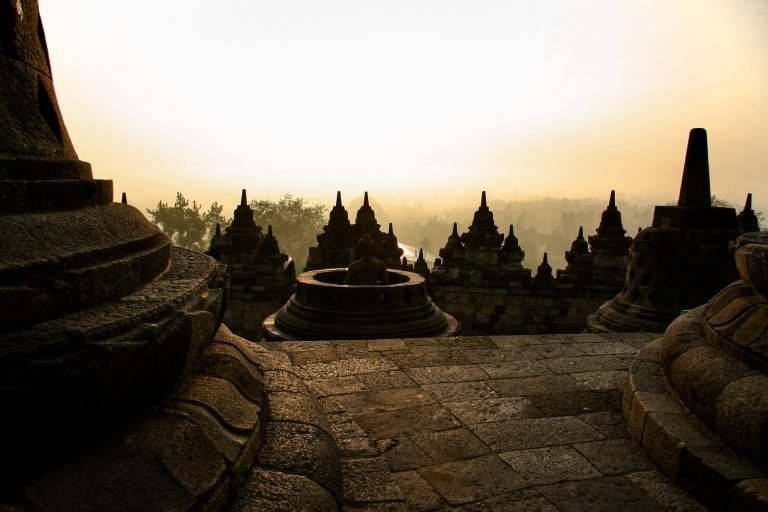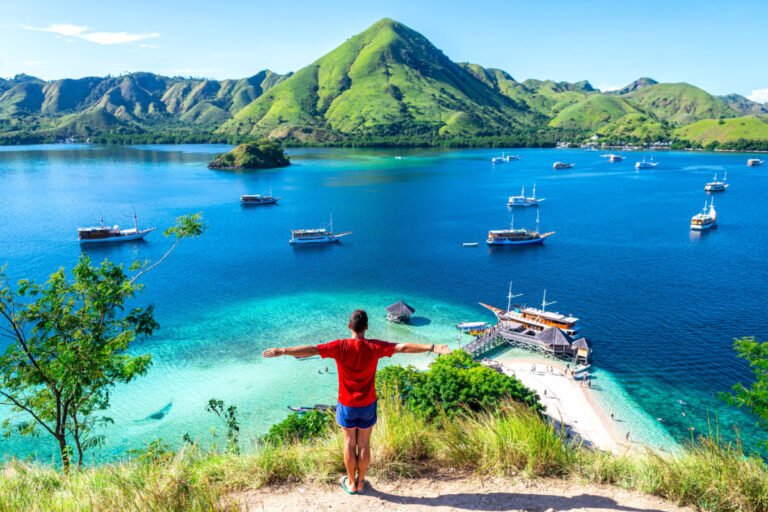The Regency of Gianyar stands out as the cultural and artistic heart of Bali. It’s a region where ancient traditions and modern creativity converge seamlessly, from vibrant villages to lush picture-postcard landscapes, Gianyar is a microcosm of Balinese heritage and spirituality, offering both visitors and investors a glimpse into the soul of Bali.
Ubud: The Beating Heart of Gianyar
Ubud, arguably the most well-known and most popular town in Gianyar, is synonymous with wellness, spirituality, and culture. Often perceived as a standalone destination, Ubud plays a crucial role in shaping the Regency’s identity.
Known for its lush verdant rice terraces, serene temples, royal palaces, and bustling markets, Ubud is a place where traditional Balinese spirituality meets modern wellness practices and tourism.
The town’s appeal extends beyond yoga retreats and art galleries, with landmarks like the Pura Taman Saraswati temple and traditional marketplaces showcasing Bali’s artistic depth. Visitors flock to Ubud for its holistic retreats, vibrant arts scene, and the chance to experience Balinese spirituality first-hand.
Historical and Cultural Riches
Gianyar as a whole, however, is a treasure trove of historical sites and cultural heritage that extends far beyond Ubud. For those drawn to Bali’s spiritual and historical roots, Gianyar offers iconic sites such as Goa Gajah (Elephant Cave), a 9th-century sanctuary nestled within lush forests.
Nearby is Tirta Empul, one of Bali’s most sacred water temples, where visitors and locals alike participate in purification rituals in the holy springs. Just a short distance away, the ancient rock-cut temple of Gunung Kawi sits along the Pakerisan River, its 11th-century shrines carved into cliffs in honor of Balinese royalty.

Beyond these spiritual landmarks, Gianyar is a hub of Balinese performing arts. In the village of Batubulan, for example, the iconic Barong Dance performance brings to life the mythical battle between the mythical child-eating demon queen Rangda who leads an army of evil witches against the forces of good led by the lion-like king of the spirits Barong; a performance deeply rooted in local religious traditions.
A Gateway to Bali’s Artisan Villages
Gianyar is not only a place of ancient temples and performances but also a living center of traditional crafts. Villages like Batuan, Celuk and Mas are renowned for their craftsmanship, specializing in intricate silverwork, exquisite wood carvings, sculptures, and beautiful paintings, and are home to some of Bali’s finest artisans.
In these villages, visitors can walk through studios filled with meticulously crafted artworks and observe the artisans at work, offering a rare glimpse into Bali’s creative process. The villagers are often eager to share their techniques, showcasing the dedication that goes into each piece.
Stunning Natural Landscapes and Adventure Opportunities
While Gianyar’s culture is a major draw, its landscapes are equally captivating. The region’s terraced rice fields, jungle-covered hills, and winding rivers create a scenic backdrop for both adventure and relaxation.
The famous Tegalalang Rice Terraces, a UNESCO World Heritage site, is a fabulous example of the ancient subak irrigation system and offers stunning views of cascading green fields.
The Ayung River provides a thrilling experience for adventure seekers with its white-water rafting opportunities, while Bukit Campuhan Ridge and Bukit Jati offer panoramic hiking trails that showcase Gianyar’s untouched natural beauty, with views stretching to the peaks of Mount Agung.
For families and nature enthusiasts, Gianyar is also home to the Bali Safari & Marine Park, one of the island’s largest wildlife conservation centers. The park houses over 100 species, including the rare Komodo dragon and Sumatran tiger, providing an educational and engaging experience for all ages. These diverse natural attractions make Gianyar a destination that offers not only cultural richness, but also opportunities to connect with Bali’s wild landscapes.
Gianyar’s Culinary Scene: A Taste of Bali’s Flavors
The Gianyar Night Market (Pasar Malam) just outside Ubud, is a must-visit for food lovers, where the aromas of Balinese cuisine fill the air. This bustling market is an ideal spot to sample local dishes such as Babi Guling (roast pork) and Lawar (a traditional salad made with coconut, vegetables, and minced meat).
Sweet treats like Jaje Laklak (rice flour pancakes) and Klepon (rice cakes filled with palm sugar) are also popular, offering a taste of Bali’s culinary heritage. The night market captures the lively spirit of Gianyar and provides a feast for the senses, making it an essential experience for anyone visiting the region.
Celebrating Creativity: Ubud Writers & Readers Festival and More
Ubud is also renowned for hosting the Ubud Writers & Readers Festival (UWRF), one of Southeast Asia’s premier literary events. Each year, this festival attracts authors, thinkers, and readers from around the world, transforming Ubud into a hub of creative expression and intellectual exchange.
The UWRF showcases literature, film, art, and music, fostering a dialogue around global and local issues and celebrating diverse voices. Alongside the writers’ festival, Ubud hosts other international events like the Bali Spirit Festival, which focuses on yoga, dance, and wellness, drawing practitioners and teachers globally.
These events not only reinforce Ubud’s reputation as a center for creativity and personal growth but also underscore Gianyar’s commitment to celebrating and sharing Balinese culture with the world.
Investment Potential in Gianyar’s Growing Landscape
Beyond tourism, Gianyar offers exciting investment opportunities, especially in hospitality and eco-tourism. The rise of sustainable and wellness-focused tourism in Ubud has made Gianyar an attractive region for eco-friendly resorts, wellness centers, and boutique hotels.
With its focus on nature and culture, the area is ideal for projects that emphasize sustainability, catering to travelers looking for meaningful, environmentally conscious experiences.
Artisanal villages also present additional investment potential in the creative industries, from traditional workshops to art galleries that celebrate and promote Balinese crafts. The growing trend of experiential travel, where visitors seek immersive cultural experiences, aligns well with what Gianyar has to offer.
For residential investors, the outskirts of Ubud and other areas within Gianyar provide a peaceful alternative to the bustling tourist hubs of Bali. The increasing number of expats and digital nomads choosing Gianyar as their home highlights the region’s appeal, with opportunities for long-term residential developments that balance tranquility with access to cultural hubs.
A Glimpse into Traditional Balinese Life
Unlike many other parts of Bali that have seen rapid commercialization, Gianyar maintains a commitment to preserving its traditional ways of life. Villages such as Sukawati, famous for its art market, and Celuk, known for silver craftsmanship, reflect a slower pace of life where age-old customs are still observed.
The Sukawati Art Market, one of the island’s oldest, offers visitors a chance to shop for traditional crafts and interact with local artisans, providing an authentic Balinese cultural experience.
Gianyar: A Destination Beyond the Ordinary
Gianyar’s appeal lies in its harmonious blend of culture, tradition, and nature. Visitors can explore ancient temples, witness traditional dances, hike through lush landscapes, and experience the vibrant night market, all in one Regency. While Ubud may be the most well-known part of Gianyar, the regency as a whole offers a tapestry of experiences that go beyond the typical tourist trail.
For travelers seeking an authentic connection with Bali and for investors looking to engage with a region rich in heritage and potential, Gianyar is more than just a destination; it is the essence of Bali itself. Whether drawn by its cultural depth, natural beauty, or unique investment opportunities, Gianyar remains a place where Bali’s heart and soul truly reside.

















